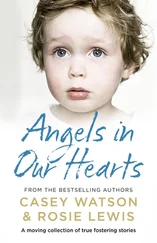Richmond’s body was not stiff. It was supple and warm, and as he undressed her, Josephine thought that maybe it wasn’t happiness that needed to knock on the doors of the unhappy. Maybe it was other people’s unhappiness that needed to knock, or rather, just let itself in. As Richmond’s body covered hers, his unhappiness covered hers until there was nothing but heat and movement. And when he left her there, on the kitchen floor, his unhappiness still hovered over her like a blanket.
When Josephine woke up the next morning, she was still lying on the kitchen floor. Richmond had thrown a blanket over her naked body. She was having the inevitable birthday meltdown, she told herself. People should be required to stay home on their birthdays, and on the days surrounding their birthdays. There should be a special padded cell where people could stay until the week of their birth was over. She checked herself for regret, for guilt, for feelings of pain for Theresa, but there were none, at least none that she could feel, which seemed like a really bad sign. At least she wasn’t in her bed. That was something to be grateful for.
The phone rang and rang. She let it ring. The answering machine picked up and it was Eli. “Happy birthday, Jo,” he said cautiously. “Are you there?”
She could almost say in truth that she wasn’t. He worried for her, and she hated to make him worry, but it was as if she gave off a worry-for-me scent. When they first met, she told him the story of her family and he told her the story of his. That was early on when everything, including the idea of the other person heartbroken in some distant past, fueled their attraction for each other. His story was equally full of drama — divorce, affairs, the death of his mother when he was seven. “You’re not alone,” he’d whispered to her more than once. Somehow, this was never as comforting as it was meant to be.
“I’ll call back later,” he said. “Hope you’re taking the day off and treating yourself.”
She couldn’t answer the phone, but she would go to the eye doctor. The spiders were back, two-stepping across her vision.
Dr. Piazza, the optometrist, put Josephine’s face in a viselike contraption to keep her head still. He adjusted his own thick-lensed glasses, then pressed a button, setting the machine in motion.
As the light came toward her eye, she willed it to blind her. Maimed, she would be excused from any other affliction. She’d strike a deal with the universe — take her sight, she’d take happiness. Happiness might be asking too much — occasional contentment? That seemed reasonable, though she knew it didn’t work that way. Through her job, she’d met men and women whose houses had burned to the ground while they were in the hospital on the verge of death, their child on life support in the next room. There was no quota on misery.
The black dots seemed larger now, two ill-fitting eye patches. They breathed, breathing themselves larger and smaller. The machine touched her eye with its round, cold surface. It clung like a plunger and Josephine thought for a minute it would pull her eye entirely out of its socket. She leaned into it to help it along, but Dr. Piazza pulled her head gently back.
“Just relax,” he said.
“Floaters,” he announced, after the tests. “They’re a sign of nearsightedness — remnants of an artery that nourished your eye while you were still in your mother’s womb.” Josephine was amazed at the prospect of receiving something nourishing from her mother, all these years after her death.
“Sometimes these things resolve themselves,” Dr. Piazza said, taking off his glasses to rub his eyes. “The body just takes care of it. We’ll wait and see, all righty?”
“All righty,” Josephine repeated. She liked the idea of her body as a self-maintaining container for her thoughts, carrying them from place to place like a bucket filled to the brim with sloshing, precious water.
Dr. Piazza recommended she go home— Rest, take the day off, treat yourself, it’s your birthday?! Forget about it! Order in or get your boyfriend — you’ve got a boyfriend, right? A pretty woman like you? Get that boyfriend of yours to cook you a nice home-cooked meal —but she decided to make an effort, to make a show of participation in this whole party concept. Something festive — balloons? What was so festive about blown-up rubber? Maybe a colorful assortment of finger foods — vegetables, fruit? Gourds? What were gourds anyway?
She made her way carefully to the grocery store, got a cart, and found herself in the fruit and vegetable aisle. And then there she was, on the floor again. She got up from where she’d fallen to one knee, her fingers pressing lightly at her eye sockets. The shadows pulsed in an almost celebratory way, revived, and her life lurched forward like her grocery cart rolling away in zigzags on faulty wheels.
There was something joyful, giddy even, about the dancing spiders this time. They didn’t impair her sight so much as focus it. They were nourishment after all. Beyond their wiggling black bodies, Josephine caught a glimpse of melons like giant baby heads, graceful sweeps of green-purple rhubarb stalks, white onions the color of someone’s pale skin.
The floaters pulsed like a beating heart and Josephine stroked a melon for reassurance. She felt a surge of excitement like the one she had felt in her dream last night watching the next-door girls run through her house. “Wednesday!” they’d shouted. Today was Friday. The excitement was more vivid than life, but real and really hers.
A rail-thin grocery clerk in a loose green apron pushed Josephine’s cart over from where it had rolled into a display of generic green plants, their leaves edged with brown.
“Is this yours?” he asked. He reached a bony arm into the cart and pulled out a carton of milk. He held it up to her as if this would help her decide. Josephine returned the melon carefully to its place, rubbed her eyes with fingers ripe with faint sweet-melon scent.
“No,” she said definitively, looking at the grocery cart filled with brightly colored, warty gourds and packages of balloons. Like the Hindu mystics, she must break the cycle. “I don’t know whose that is,” she said. She noticed the clerk’s jagged edges, the sharp outline of his white teeth, and the dent in his apron where his hip bone pressed against it.
“Really,” he said. It wasn’t a question. He lifted the milk carton into the air in front of Josephine’s face. He tapped a long finger against the place where it said homogenized .
“Really,” she said. She smiled at him to seal the deal. She slid away, her fingers gliding along the sticky metal sides of fruit stands and bread tables; she inhaled the chemical sweet smell of the cakes in the bakery; aware of the track light ticking overhead as she moved past other shoppers pushing their carts. She thrilled at the idea of her cart abandoned.
She would call a cab and leave her car in the grocery store parking lot, come back for it later. Maybe she would never come back for it. Maybe she was through with that car.
She leafed through the yellow pages and dialed the number of a cab company called At Your Service. It amazed her that cabs would pick you up and take you anywhere you wanted to go, no questions asked. She was no fool; she was a therapist, for Christ’s sake. She knew she was on the run, but still she could go anywhere, anywhere at all, and her stomach dropped with the sheer possibility of it. She went outside to wait.
The cabdriver who pulled up in front of the grocery store was a woman with no right forearm who wore a wristwatch on that elbow. This struck Josephine as a brave gesture, and she sank comfortably into the the smoky, plastic smell of the backseat. She closed her eyes, and the black dots became shadows again.
Читать дальше












